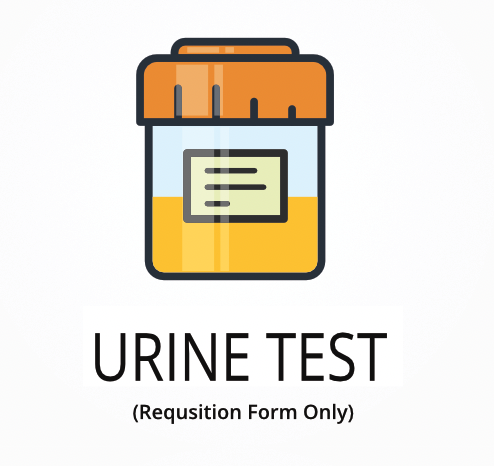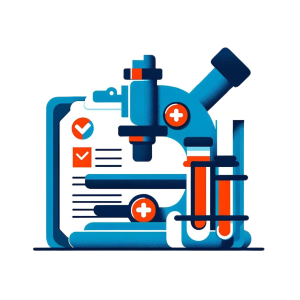 What Is the Catecholamines, Free Test?
What Is the Catecholamines, Free Test?
This test measures the levels of catecholamines in your urine, including adrenaline (epinephrine), noradrenaline (norepinephrine), and dopamine. These hormones are crucial for your body’s stress responses and for maintaining vital functions like heart rate and blood pressure.
Why Is This Test Important?
Understanding the levels can be essential in both traditional and functional medicine. It helps diagnose conditions like pheochromocytoma, a rare tumor that can cause the overproduction of catecholamines, and other disorders affecting your adrenal glands.
Why Consider Ordering This Test?
If you’re experiencing symptoms like high blood pressure, severe headaches, or heart palpitations, this test can be a vital tool. It’s easy to order and can provide crucial insights into your health, helping you and your healthcare provider make informed decisions about your treatment.
Labs Included in Your Order
| Test Name | Reference Ranges | Significance of High and Low Levels |
|---|---|---|
| Catecholamines, Free (24-Hour Urine with Creatinine) |
|
High: High levels may indicate pheochromocytoma, neuroblastoma, or other conditions affecting adrenal function.
Low: Low levels can be due to various factors, including certain medications or adrenal insufficiency. |
| Catecholamines, Free (24-Hour Urine without Creatinine) |
|
High: Elevated levels may suggest active stress response, adrenal tumors, or severe physical or emotional stress.
Low: Lower than normal levels might indicate adrenal insufficiency or other underlying health conditions. |
| Catecholamines, Free (Random Urine) |
|
High: Suggests excessive production possibly due to stress, tumors, or hyperactivity of adrenal glands.
Low: Indicates possible adrenal insufficiency or dysfunction. |
Catecholamines, Free FAQ
What is this test for?
This test measures the amount of catecholamines in your urine. It is used to detect conditions related to excessive or deficient catecholamine levels, such as pheochromocytoma or adrenal insufficiency.
What do low and high levels mean?
High levels may indicate pheochromocytoma, a rare tumor, or other conditions causing excessive hormone production. Low levels can suggest adrenal insufficiency or other health issues that suppress hormone production.
What are the signs and symptoms of the issue the test is testing for?
Signs and symptoms might include severe headaches, excessive sweating, rapid heartbeat, and high blood pressure among others.
How often should I retest?
Retesting frequency depends on the initial results and underlying condition. Your healthcare provider will recommend when it is appropriate to retest based on your specific circumstances.
How accurate is the test?
This test is highly accurate when collecting the urine sample according to guidelines. It is critical to follow pre-test instructions to ensure reliable results.
What are the test preparations?
Avoid stress before blood draw. Many drugs (reserpine and alpha methyldopa, levodopa, monoamine oxidase inhibitors, and sympathomimetic amines) may interfere and should be discontinued two weeks before specimen collection. Nose drops, sinus and cough medicines, bronchodilators and appetite suppressants, α2-agonists, calcium channel blockers, converting enzyme inhibitors, bromocriptine, phenothiazine, tricyclic antidepressants, α- and β-blockers, and labetalol may interfere. Mandelamine® interferes, but thiazides do not. Caffeine products should be avoided before and during collection. The patient should not be subjected to hypoglycemia or exertion. Increased intracranial pressure and clonidine withdrawal can cause false-positive results.
Are test results private and confidential?
Receive test results securely on TrueHealthLabs.com under ‘My Account.’ It’s critical that you share them with your physician. Results may be disclosed to health authorities only if legally mandated, e.g., for STDs or COVID-19. Review our privacy policy for more details.
To learn more, see our comprehensive guide to the LINK TO SUPPORTING PAGE IF APPLICABLE.
Medical Review Board
Reviewed by our medical review board consisting of Jeff Donohue M.D. from Body Logic and Brady Hurst DC, CCCN. Written by True Health Labs team of editorial health contributors.
Disclaimer: This information is for educational purposes only and not intended as medical advice. Consult your healthcare provider for personalized guidance.
Medical Review Board
Reviewed by Jeff Donohue M.D. from Body Logic and Brady Hurst DC, CCCN. Written by True Health Lab’s team of editorial health contributors.
Disclaimer: This information is for educational purposes only and not intended as medical advice. Consult your healthcare provider for personalized guidance.
Also rated 4.6 out of 5 based on 3439 ShopperApproved reviews- See all TrueHealthLabs.com reviews.



 What Is the Catecholamines, Free Test?
What Is the Catecholamines, Free Test?

